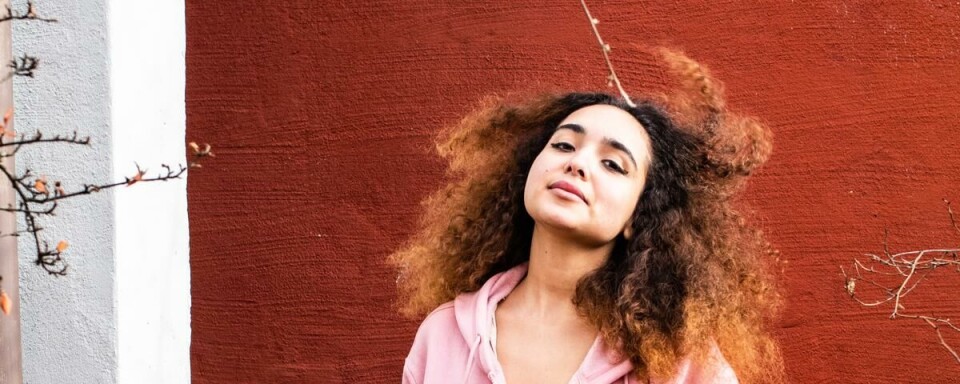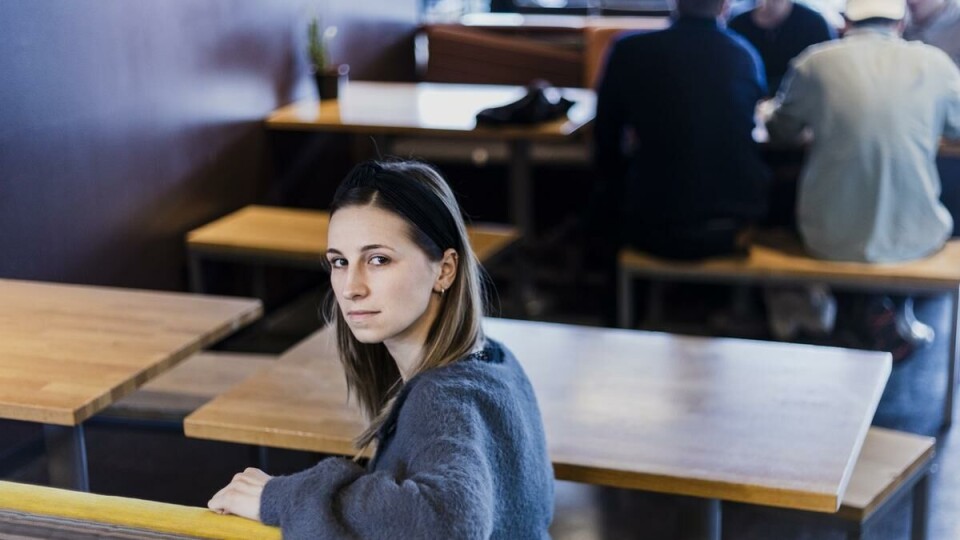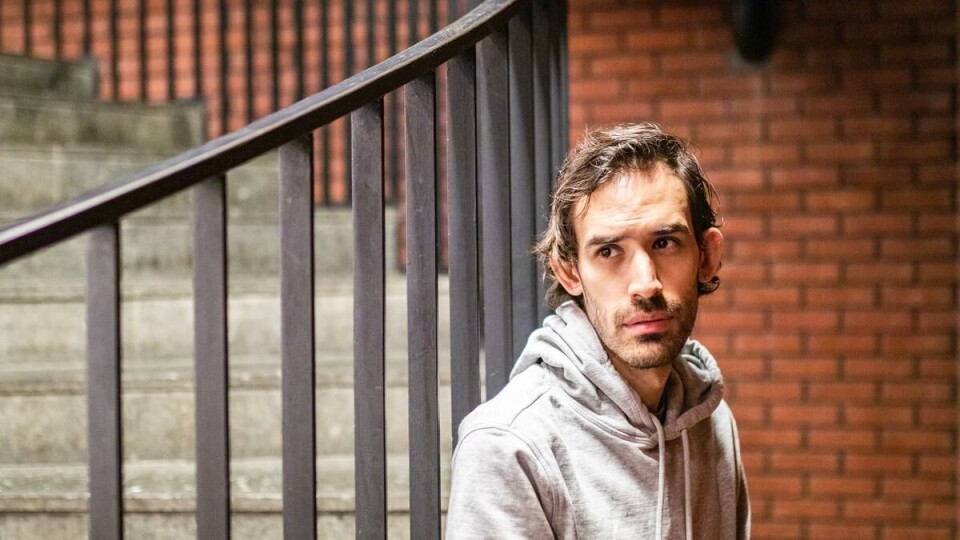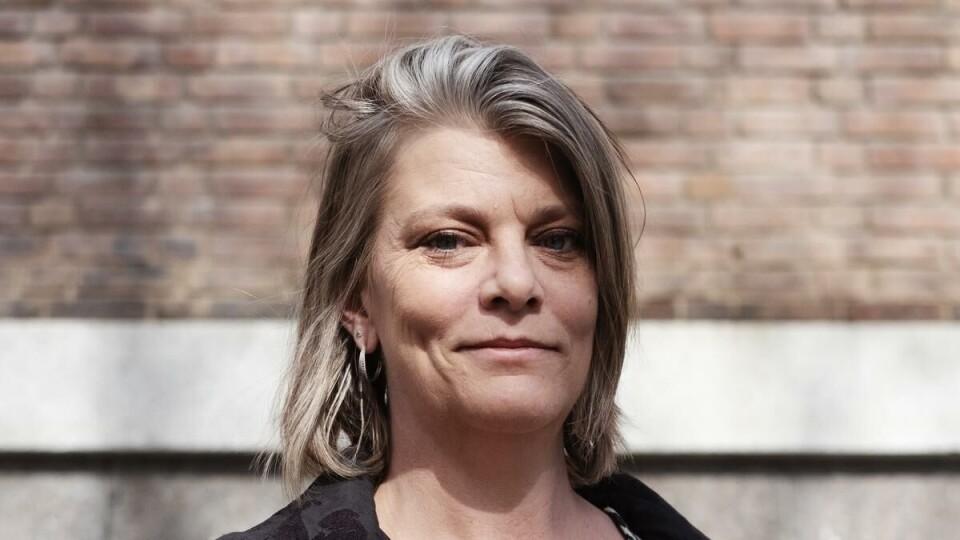Experiencing the pandemic in a foreign country:

Omnia hasn’t seen her family for two years
In 2021, the second year of the pandemic, there were 22,540 foreign students in Norway. We spoke with three of them.
Omnia Khalil came to Norway from Egypt in August 2019, ready to take on student life in a new country. But she wasn’t able to study for long before the country shut down.
— I came here right before corona, and I haven’t left Norway since then. I’ve been here since corona started, so I definitely know what it’s like to have been an exchange student throughout the pandemic.
Khalil is studying a master’s degree in International Community Health at the University of Oslo. Her last physical lecture was held on March 12th 2020.
— All of the places we could do our readings together closed down. We couldn’t go anywhere or do anything. We were stuck inside our apartments.
It was difficult for her to be separated from her friends and classmates, but also to see some other exchange students who had completed their studies be able to go back home to their families.
— Most exchange students are here for one semester. I remember many of them traveled home right before the country’s lock down after the autumn semester, but I couldn’t. To not have been able to see my family for so long has been very difficult for me.
ISU highlights the financial burden caused by the pandemic
On top of being an International Student herself, Khalil is also the president of UiO’s International Students’ Union. She wants to better the situation of international students, which was according to her already vulnerable even before the pandemic broke out. Khalil lived on her savings during the lockdown.
— International students don’t get student loans from Lånekassen (the Loan Fund) unless they have taken 180 credits and have lived here for three years, and even for those who get the support from the Lånekassen, it is still too little.
Many international students therefore have jobs - like many Norwegian students too, so this left them in a vulnerable position when the country closed down. Khalil says that there were many looking for work in shops and restaurants during the pandemic.
— They [international students] struggled financially.
Also read: Bombarded by News: How to Maneuver a News-Bombardment
Luise Maria Kozlowski (28)

Campus Kunowice
Luise Maria Kozlowski (28) came back to Norway to study Public International Law at the University of Oslo after a previous successful study exchange in Oslo. She began in the autumn of 2020, but didn’t actually come to Oslo until the autumn of 2021. The
whole of her first her first year was completed with lectures on Zoom that she assisted from her hometown Kunowice in Poland.
— I studied from my parent’s home in Poland, so it was difficult to get to know people. It was sad because I didn’t really have anyone I could talk to about my courses.
She describes kind-hearted, but inadequate, attempts by the faculty to make studying work during the pandemic situation.
— The lecturers encouraged us to make a WhatsApp group, so that we could be like a family. It worked for a while but it kind of became awkward to use when you don’t know each other that well. So it was mostly used to just ask questions about the subject.
One student from Australia could not attend the seminars due to the time difference, so he left the course. You cannot assist seminars at two oʼclock at night.
Kozlowski also explains that she had an Australian classmate who chose to drop out due to the pandemic.
— One student from Australia could not attend the seminars due to the time difference, so he left the course. You cannot assist seminars at two o'clock at night.
Kozlowski tells us that international students are even more dependent on functioning associations than the Norwegian students are. It’s important that they receive the right information at the right time.
— I had high expectations, because when I studied here in 2016, I enjoyed it very much. But this time we received little information from the university. We had to take it upon ourselves to get information from our supervisor, and we generally had to wait a long time for an answer. Sometimes he did not answer at all.
Ricardo Rivera (27)

Quarantine friends
Ricardo Rivera (27) arrived in Norway from Mexico in the autumn of 2021 when the country was semi-open. Like Kozlowski, he puts forward the lack of information from the university.
— During the whole process, there was little communication, and when I first received information, it was more about infection control than about my study situation.
However, he lets the doubt benefit the university, and blames most of the fact that faced a tricky start to his studies due to the pandemic.
— When I could not arrive on the date I had booked a flight ticket, it was because the border was closed. It was still a complicated process.
However, there are other challenges that international students faced that didn’t only take place on campus or on SiO properties. As an exchange student from non-European countries, you spend a lot of energy sorting out things that Norwegian students take for granted. Rivera cites Vipps and BankID as examples.
— I do not have Vipps, something I quickly realized is very useful here. It would have been nice to have been able to order Foodora, but I need Vipps, and to get Vipps I need BankID, something I have been trying to get for six months now, he says.
I met one of my best friends in Norway in a quarantine hotel when I arrived here.
Introverted Norwegians
International students often express their frustration over trying to understand how Norwegian function socially. Most of their friends are also international students; it isn’t easy to come into contact with Norwegian students.
Fortunately, Rivera had someone he could rely on from the start:
— I met one of my best friends in Norway in a quarantine hotel when I arrived here. We both arrived from Mexico at the same time and lived in the same SiO building.
Where I come from, you rarely sit by yourself. We do not make microwave-food and sit at home, we go out and meet people.
For Ominia Khalil, it was quite trying to be new in Norway and being put into a dormitory. From her home country, she wasn’t used sitting alone in a student dormitory.
— Where I come from, you rarely sit by yourself. We do not make microwave-food and sit at home, we go out and meet people.
Rivera has gained one or two experiences about Norwegians, and believes it isn’t so easy to get to know new people.
— Norwegians often live in their own social bubble, and it is difficult to get inside of that bubble. There's nothing wrong with it, but it is different.
There is a big social difference between a sober Norwegian and a drunk Norwegian.
However, he has developed a theory on how to get Norwegians to open up:
— There is a big social difference between a sober Norwegian and a drunk Norwegian, Rivera laughs.
The university took action
When asked about how UiO treated international students during the pandemic, Hanna Ekeli, director of the study department at UiO, writes that they took many steps to keep up with the ever-changing rules and guidelines. Among other things, “Knutepunktet” has held digital events in addition to some social events, and the administration has helped students get in touch with the police and the UDI to clarify their student status.
According to Ekeli, the housing situation was one of the biggest challenges for both the university and the international students.
- The pandemic led to a reduced supply of student housing, and UiO was not able to guarantee all international students student housing. We believe that some exchange students, who were not offered housing through SiO chose to cancel their exchange at UiO, writes Ekeli in an email.

However, this does not mean that the university did not try, Ekeli states. In 2021, they entered into agreements with two hotel chains to meet the demands for housing for international students. In addition, they covered a deductible for the quarantine hotels. Like the students, Ekeli points out that international students' studies are disrupted by practical challenges that Norwegian students do not have to deal with. For example, she mentions long waiting times with the police to be registered as a student and get a Norwegian social security number, as well as to open a bank account and get access to health services. Achieving these steps though is completely outside of the university's responsibilities.
- These are practical things that Norwegian students do not need to think about, and it can take the focus away from their [international students] studies. We therefore see that some students at UiO have been held back by this.
In general, she has the impression that international students have been satisfied with the help they received during the pandemic. Although the waiting period was longer than usual during the pandemic, it has rarely taken more than a week to get answers to inquiries sent to the university. However, she points out that the response time can vary from faculty to faculty.

































